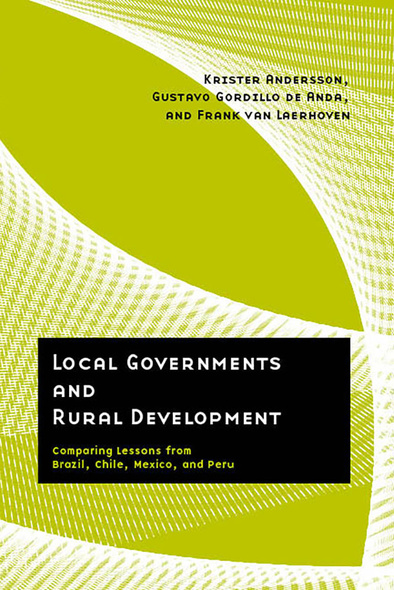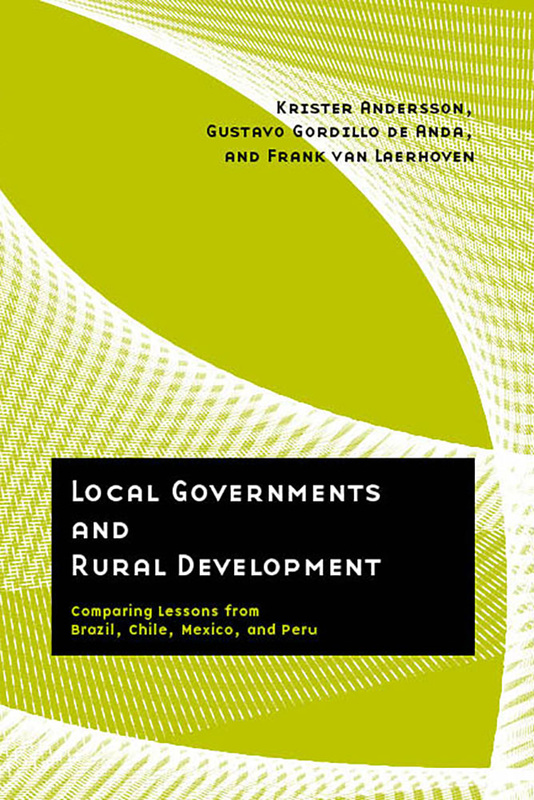Local Governments and Rural Development
Comparing Lessons from Brazil, Chile, Mexico, and Peru
The University of Arizona Press
Despite the recent economic upswing in many Latin American countries, rural poverty rates in the region have actually increased during the past two decades. Experts blame excessively centralized public administrations for the lackluster performance of public policy initiatives. In response, decentralization reformshave become a common government strategy for improving public sector performance in rural areas. The effect of these reforms is a topic of considerable debate among government officials, policy scholars, and citizens’ groups. This book offers a systematic analysis of how local governments and farmer groups in Latin America are actually faring today.
Based on interviews with more than 1,200 mayors, local officials, and farmers in 390 municipal territories in four Latin American nations, the authors analyze the ways in which different forms of decentralization affect the governance arrangements for rural development “on the ground.” Their comparative analysis suggests that rural development outcomes are systemically linked to locally negotiated institutional arrangements—formal and informal—between government officials, NGOs, and farmer groups that operate in the local sphere. They find that local-government actors contribute to public services that better assist the rural poor when local actors cooperate to develop their own institutional arrangements for participatory planning, horizontal learning, and the joint production of services.
This study brings substantive data and empirical analysis to a discussion that has, until now, more often depended on qualitative research in isolated cases. With more than 60 percent of Latin America’s rural population living in poverty, the results are both timely and crucial.
Based on interviews with more than 1,200 mayors, local officials, and farmers in 390 municipal territories in four Latin American nations, the authors analyze the ways in which different forms of decentralization affect the governance arrangements for rural development “on the ground.” Their comparative analysis suggests that rural development outcomes are systemically linked to locally negotiated institutional arrangements—formal and informal—between government officials, NGOs, and farmer groups that operate in the local sphere. They find that local-government actors contribute to public services that better assist the rural poor when local actors cooperate to develop their own institutional arrangements for participatory planning, horizontal learning, and the joint production of services.
This study brings substantive data and empirical analysis to a discussion that has, until now, more often depended on qualitative research in isolated cases. With more than 60 percent of Latin America’s rural population living in poverty, the results are both timely and crucial.
Krister Andersson is an assistant professor of environmental policy at the University of Colorado at Boulder. In 2007, he was awarded the Giorgio Ruffolo Research Fellowship in Sustainability Science from Harvard University. Gustavo Gordillo de Anda is the former assistant director general of the Food and Agriculture Organization (FAO) of the United Nations and regional representative for Latin America and the Caribbean and has been viceminister of agriculture in Mexico. Frank van Laerhoven is an assistant professor fo environmental social sciences at Utrecht University in the Netherlands. He previously worked for the FAO in Senegal and Chile.
List of Maps
List of Tables
Acknowledgments
List of Abbreviations
1 Poverty, Rural Development, and Local Governance in Latin America
2 Framing the Comparative Study of Decentralization in Latin America
3 The Role of Local Governments in Rural Development in Brazil, Chile, Mexico, and Peru
4 Brazil: At the Decentralization Forefront
Frank van Laerhoven
5 Chile: A Free-Market Model of Decentralization
With Paul Lewin
6 Mexico: A Case of Limited Decentralization
With Fabián González and Juan José Ochoa
7 Peru: The Pre-Decentralization Baseline Case
Miguel Jaramillo Baanante
8 Comparative Analysis of the Institutional Conditions for Effective Rural-Development Services
9 Does Decentralization Promote Participatory Governance? A Comparative Analysis
10 Conclusions
Notes
References
Index






